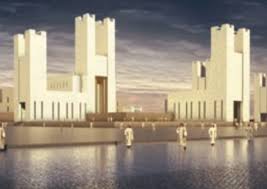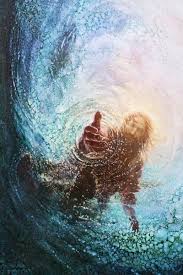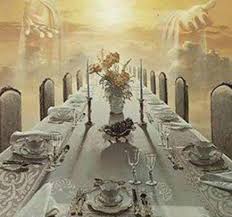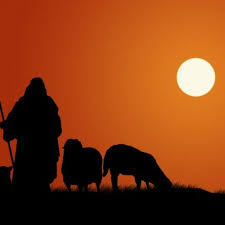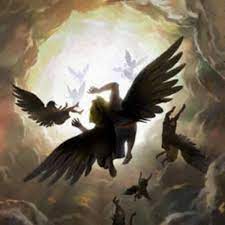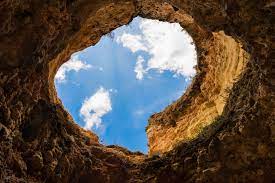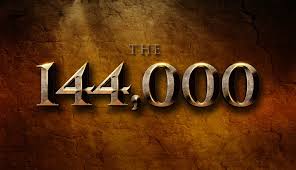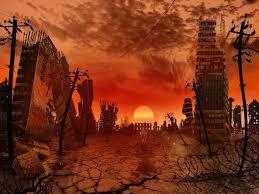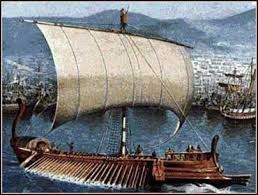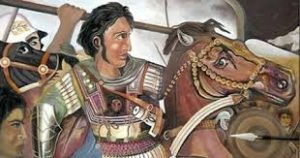Fg – You Who Dwell in the Dust Will Wake Up and Shout for Joy 26: 19
You Who Dwell in the Dust
Will Wake Up and Shout for Joy
26: 19
You who dwell in the dust will wake up and shout for joy DIG: Why the vineyard symbolism? How had Isra’el failed to bear fruit in the past? Why do you think the Ruach Ha’Kodesh inspired Isaiah to write this verse? In what ways are ideas about the afterlife in the B’rit Chadashah foreshadowed here?
REFLECT: What hope is held out to you here as you consider your failure in life? How might this hope affect your view of yourself? Your willingness to take risks? Your sense of God’s call on your life and ministry? How does ADONAI’s Word lift your spirits when you are discouraged or down in the dumps?

In the previous section (to see link click Ff – LORD, You Established Peace for Us), Isaiah declared that in the far eschatological future Isra’el would become the fruitful vineyard that ADONAI had intended (27:2-6). One day Messiah will be crowned on Mount Tziyon and invite all believers to feast with Him. But the hearers of Isaiah’s message centuries before the Second Coming of Messiah probably thought, “But what about me and my loved ones? How is that supposed to offer me any hope today when my life looks so bleak with no relief in sight?” At that time, the Ruach Ha’Kodesh inspired the human author to write a response to such a poignant question: the dead will rise from the grave with shouts of joy to share in the festivities of God’s final triumph.
Again and again the Scriptures appeal to us to endure hardship, contradictions and unanswered questions in this life because of what is laid up for us beyond this life (Romans 8:18-25; First Corinthians 15:20-28; Hebrews 12:1-2; Revelation 2:7, 10-11, 17, 26-29 and 14:13). So be encouraged and encourage others with these words. Your struggles, hardships, disappointments and tragedies are not in vain.
This verse is one of the few that specifies a coming resurrection of the righteous of the TaNaKh, at the end of the Great Tribulation (see the commentary on Revelation Fd – The Resurrection of the Righteous of the TaNaKh). Because the Rapture includes only New Covenant believers and Tribulation martyrs, the righteous of the TaNaKh, the holy ones (Deuteronomy 33:2-3; Job 5:1; Psalms 16:3 and 34:9; Zechariah 14:5) will not be resurrected until after the Great Tribulation.
Elsewhere, the resurrection of the righteous of the TaNaKh is found in only a few places: first, in Dani’el 12:2, and secondly, in Hosea 13:14 and Ezeki’el 37:1-14, where it describes the restoration of the nation and not a resurrection of individuals per se. It was because of the scarcity of such passages that when we get to the New Covenant, the Sadducees debated and doubted that there would be such a thing as a resurrection. The Pharisees believed it, but the Sadducees did not (Acts 22:30 to 23:10).
Even though Isra’el was not a fruitful vine in his day (5:1-7), Isaiah saw a time in when she would bear fruit. He was probably so excited that he spoke directly to the LORD, saying: But your dead will live. “Those who believe in You will not be abandoned. They still belong to You.” Precious in the sight of the LORD is the death of His holy ones (Psalm 116:15). Their bodies will rise when they are resurrected (26:19a).
You who dwell in the dust (26:19b) is a common description of the underworld in the ancient Near East. Not only was it in the dust, in the sense of being underground, it was also a gray, shadowy, dusty place (Job 21:26; Psalm 22:15). But those who love the God of Abraham, Isaac and Jacob need not worry. The stillness of the grave will give way to jubilant singing. For all the stale, crumbling dust of the tomb, there is the fresh, hopeful dew of the morning (Job 14:7-12). The most the pagans could hope for was to be remembered fondly by those left behind, but biblical faith states that we are important to God and live forever in His memory (Psalm 1:6; Isaiah 49:16; Malachi 3:16; Philippians 4:3; Revelation 3:5).
Isaiah saw a day when God will declare to his faithful nation: Wake up and sing (26:19c KJV). The previous verse talked about the dead, now they are spoken to. The message progresses from theory to fact. ADONAI is our Promise Keeper. When they are resurrected they will be refreshed in the way the morning dew refreshes the grass (Hosea 14:5). Darkness is death; light is life (Job 3:16; Psalms 49:19, 56:13) and salvation (Psalms 27:1 and 104:2; Second Samuel 23:4; Isaiah 9:2, 59:9, 60:1 and 3). That is, they will experience God’s blessings during the Messianic Kingdom.
And the earth will cast forth the shadows (26:19d KJV). The righteous of the TaNaKh that have been mere shadows of existence in sh’ol will take on flesh and blood again by means of the resurrection. Or, as the NIV says: the earth will give birth to her dead, or shadowy ones (26:19e), like the dew of the morning, literally lights. God’s dew will rest upon the dead as He will force the earth to give them up to life in His presence forever. The principle is this: God brings the dead to life as the dew revives vegetation. The rabbis teach that there is a “dew of life,” a supernatural dew, which will descend on the dead and bring them back to life.
Not only will Isra’el be revived, but also this future renewal will remove the internal schism that resulted in the splintering of the nation in 931 BC into the two kingdoms of the northern kingdom of Isra’el and the southern kingdom of Judah (First Kings 11:26-40). This aspect of the prophecy is not being fulfilled today but will be fulfilled in conjunction with the national regeneration (Ezeki’el 37:20-23). This will be when national Isra’el recognizes that Jesus was and is her promised Messiah.91
Isaiah tells the nation to awake and sing (KJV). The resurrection will lead to a new spiritual life; the resurrected engaging in devotional exercises and in the singing of hymns and praises to God. Early believers sang a song using this verse, which the inspired Rabbi Saul summarized when he wrote: For it is light that makes everything visible. This is why it is said: Wake up, O sleeper, rise from the dead, and the Messiah will shine on you (Ephesians 5:14).




